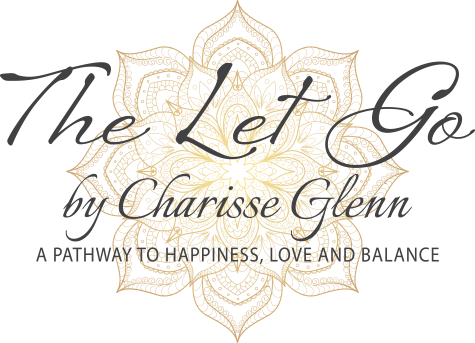“All differences in this world are of degree, and not of kind, because oneness is the secret of everything.”
~
Voiced through greetings and cultural concepts, all societies have visible and hidden elements that define their underlying values. Many of these terms have become popular outside of the country or region of origin. The genesis of the phrases becomes inconsequential when the universal truths are expressed. What resonates is the power these expressions communicate.
Greetings:
Aloha is a Hawaiian form of greeting to say hello or welcome, farewell, or to say goodbye. It is also used as an expression of love and affection. But more than just a word, aloha is also a way of life.
In Lak’ech is a Mayan phrase meaning: You are my other-self. We are one. I am another yourself. It embodies “Oneness” and not only our connection to each other but also as a tangible way to understand our connection to all that is Divine
Shalom: A Hebrew word meaning peace, harmony, wholeness, completeness, prosperity, welfare, and tranquility and is used idiomatically to mean both hello and goodbye.
Namaste: In the contemporary era, namaḥ means: bow obeisance, reverential salutation, or adoration, and te means: to you. Therefore, namaste means bowing to you.
Assalamu alaikum: An Arabic greeting: Peace be upon you, as well as the mercy of God and his blessings.
Lifestyle
Ikigai 生き甲斐: is a Japanese concept referring to having a direction or purpose in life, providing a sense of fulfillment and towards which the person may take actions, giving them satisfaction and a sense of meaning. It is sometimes translated to the reason for waking up in the morning or a reason for being.
Mitákuye Oyás’iŋ: is a phrase from the Lakota language. It reflects the world view of interconnectedness held by the Lakota people of North America. This concept and phrase are expressed in many Yankton Sioux prayers and ceremonial people in other Lakota communities. The term translates in English as all my relatives; we are all related, or all my relations. It is a prayer of oneness and harmony with all life forms: other people, animals, birds, insects, trees and plants, and even rocks, rivers, mountains, and valleys.
Ubuntu: means I am because you are. The word ubuntu is just part of the Zulu phrase “Umuntu ngumuntu ngabantu,” which means that a person is a person through other people. Ubuntu is the concept of common humanity, oneness: humanity, you and me both.
Sukha: Sanskrit means happiness, well-being, pleasure, ease, joy, or bliss. Sukha refers to an authentic state of happiness within a being that is lasting, visible in this present life, and pertaining to the future life. The term is also used in the context of meditative absorptions and intra-psychic phenomena.
Hygge: a Danish and Norwegian word for a mood of coziness and comfortable conviviality with feelings of wellness and contentment. The word hygge comes from a Danish word meaning; to give courage, comfort, joy; it stems from hyggja, which means; to think, a form of everyday togetherness, a pleasant and highly valued everyday experience of safety, equality, personal wholeness, and a spontaneous social flow.
Shikata ga Nai (仕方がない), is a Japanese language phrase meaning: it cannot be helped, or nothing can be done about it. Shō ga Nai is an alternative. Loosely translating to let it go.
Seva: a Sanskrit word. It is an expression of compassion for others and a genuine desire to uplift those around you without expecting a reward or award. Such services can be performed to benefit other human beings or society. Seva means ‘service,’ referring to the selfless efforts for the welfare of all. It is also interpreted as a dedication to others.
Ahisma: (also spelled Ahinsa) Sanskrit is an ancient Indian principle of nonviolence, which applies to all living beings. It has also been related to the notion that any violence has karmic consequences. Ahimsa’s precept of ’cause no injury includes one’s deeds, words, and thoughts.
Karma: Sanskrit: what you have done, you become. The force created by a person’s actions is believed in Hinduism and Buddhism to determine what that person’s next life will be like. The force created by a person’s actions that some people believe causes good or bad things to happen to that person.
Shibumi is a Japanese word that loosely translates to effortless perfection. Anything that is Shibumi is quiet in refinement, noble, and fulfilling in a manner that is not shaped by analytical thought. It implies simplicity of spirit; an attitude of refinement without pretension, honesty without apology, beauty without artifice. Western mystics try to attain or achieve a state of inner peace, but shibumi must be found, not won. It is understanding rather than knowledge; it is harmony in action. In philosophy, it is spiritual tranquility that is not passive; it is being without the angst of becoming.
A lesson to be learned from these few words and concepts is to find cultural and spiritual commonalities regardless of the languages that differentiate us. Differences exist, yet they do not need to drive us apart. What becomes evident are the similar concepts at the core of human nature.
My hope is for an acceptance of all variations and that we can grow to live as one.
Imagine all the people, sharing all the world. You may say I’m a dreamer, but I’m not the only one. I hope someday you’ll join us, and the world will be as one.
~John Lennon





